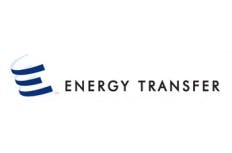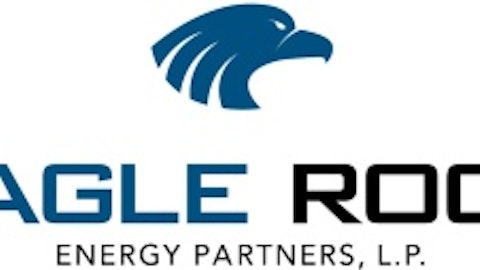High yielding master limited partnerships are some of the most attractive investments for dividend investors. These partnerships pay out heavy cash distributions and attract investors who want to have a regular stream of income. However, the prospect of regular income is not the sole characteristic of these MLPs. Some of these partnerships have shown considerable price appreciation.

Energy Transfer Partners LP (NYSE:ETP) has gained about 14% in the last year and Enterprise Products Partners L.P.(NYSE:EPD) has appreciated by over 16% during the same time period. However, Kinder Morgan Energy Partners LP (NYSE:KMP) has recorded less than impressive growth of 1.3%, but it still remains one of the best yielding partnerships in the market.
Prospects of the industry
The American shale gas boom has opened a huge window of opportunity for these companies. The problem of oversupply in the domestic market prompted the industry players to find ways to match the supply with demand in the future. In this regard, natural gas exports to Mexico have played a vital role in supporting the domestic natural gas prices. Along the way, natural gas pipeline owners have benefited substantially and prospects look even brighter.
U.S. natural gas exports to Mexico have been increasing at a rapid pace. The trade gives an advantage to both countries. The U.S. is solving the issue of oversupply in the domestic market and the energy giants will benefit from the exports. At the same time, Mexico is getting cheap natural gas to support the manufacturing boom in the country. In fact, low natural gas prices have made Mexico an attractive place to invest and a lot of global manufacturing giants are looking to set up production plants in the country — General Motors, Honda, and Nissan to name a few.
As demand for natural gas keeps on rising, owners of natural gas pipelines will continue to benefit. As a result, I believe these partnerships will continue to grow over the next five years.
How will these three partnerships perform?
First of all, let’s take a look at Energy Transfer Partners LP (NYSE:ETP). The biggest criticism for this partnership has been the stagnation in cash distributions. Investors have been disappointed as a consistent increase in cash distributions is one of the most attractive features of MLPs. The obvious reason for not increasing the cash distributions was that the partnership was not able to generate enough distributable cash flow to increase its distributions.
However, the partnership has been involved in a lot of M&A activities, which have started to pay off now — distributable cash flow has been rising and the partnership beat Wall Street expectations in the last quarter. Distributable cash flow went from $488 million in the fourth quarter of 2012 to $622 million for the first quarter of 2013. Furthermore, the partnership has ongoing projects in the midstream and LNG business, which should provide future growth. I believe hard days are over for Energy Transfer Partners LP (NYSE:ETP) and the partnership is set to grow.
Kinder Morgan Energy Partners LP (NYSE:KMP) has one of the largest asset bases in the industry. The partnership has pipelines and storage facilities across continents. The wide asset base gives the partnership a distinct competitive advantage, which has always resulted in generation of return in excess of cost of capital. In the most recent earnings announcement, the partnership increased quarterly cash distribution to $1.32 per unit. The distribution was increased by 7%, which takes its annual distribution to $5.28 per unit, yielding 6.16%.
The distributable cash flow for the partnership was up 38% for the quarter to $505 million from $366 million. Kinder Morgan Energy Partners LP (NYSE:KMP) has been increasing cash distributions regularly, and I do not expect the trend to change in the near future. As I stated above, the wide asset base provides the partnership a competitive advantage which should continue to support growth going forward. However, the price appreciation potential of the partnership does not look as attractive as its distribution yield.
Enterprise Products Partners L.P.(NYSE:EPD) is the largest MLP, and its size gives it a solid competitive advantage over a lot of its competitors. Due to the massive size of the partnership, it has been able to increase its cash distributions for thirty-six consecutive quarters. Recently, the partnership increased its distributions by 1.5% to $0.68 per share. The annual cash distribution now stands at $2.72 per share, yielding 4.3%.
The partnership has announced the binding of the open season for shipper support for the expansion of its Panola Pipeline Company natural gas liquids between Carthage and Lufkin, Texas. The project will help Cotton Valley and Haynesville producers to reach the biggest fraction complex in Mont Belvieu, Texas. If the project goes through, it will add 15,000 barrels per day of incremental capacity to the partnership. Based on the history and prospects of the industry, I believe Enterprise Products Partners L.P.(NYSE:EPD) will continue to pay attractive cash distributions.
Summary
All of the partnerships mentioned here are attractive investments in my opinion. These partnerships have impressive yields with strong growth prospects. I am very optimistic about the energy sector, and I believe these partnerships will benefit heavily from the growth of the industry. Investors can expect continued cash distributions along with steady price appreciation.
Ishtiaq Ahmed has no position in any stocks mentioned. The Motley Fool recommends Enterprise Products Partners L.P.. Ishtiaq is a member of The Motley Fool Blog Network — entries represent the personal opinion of the blogger and are not formally edited.
The article 3 Energy MLPs for Solid Gains originally appeared on Fool.com is written by Ishtiaq Ahmed.
Copyright © 1995 – 2013 The Motley Fool, LLC. All rights reserved. The Motley Fool has a disclosure policy.




